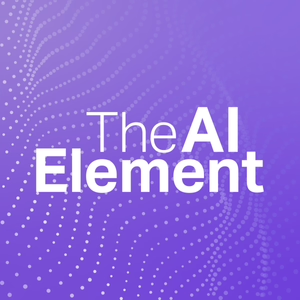“Explainability” is a big buzzword in AI right now. AI decision-making is beginning to change the world, and explainability is about the ability of an AI model to explain the reasons behind its decisions. The challenge for AI is that unlike previous technologies, how and why the models work isn’t always obvious — and that has big implications for trust, engagement and adoption. Nicole Rigillo breaks down the definition of explainability and other key ideas including interpretability and trust. Cynthia Rudin talks about her work on explainable models, improving the parole-calculating models used in some U.S. jurisdictions and assessing seizure risk in medical patients. Benjamin Thelonious Fels says humans learn by observation, and that any explainability techniques need to take human nature into account. Guests Nicole Rigillo, Berggruen Research Fellow at Element AI Cynthia Rudin, Professor of Computer Science, Electrical and Computer Engineering, and Statistical Science at Duke University Benjamin Thelonious Fels, founder of AI healthcare startup macro-eyes Show Notes 01:11 - Facebook Chief AI Scientist Yann LeCun says rigorous testing can provide explainability01:58 - Berggruen Institute, Transformation of the Human Program05:34 - Judging Machines. Philosophical Aspects of Deep Learning - Arno Schubbach 06:31 - Do People Trust Algorithms More Than Companies Realize? - Harvard Business Review 08:25 - Introducing Activation Atlases - OpenAI10:52 - Learning certifiably optimal rule lists for categorical data (CORELS) - YouTube11:00 - CORELS: Learning Certifiably Optimal RulE ListS 11:45 - Stop Gambling with Black Box and Explainable Models on High-Stakes Decisions 16:52 - Transparent Machine Learning Models for Predicting Seizures in ICU Patients - Informs Magazine Podcast19:49 - The Last Mile: Challenges of deployment - StartupFest Talk24:41 - Developing predictive supply-chains using machine learning for improved immunization coverage - macro-eyes with UNICEF and the Bill and Melinda Gates Foundation Further Reading A missing ingredient for mass adoption of AI: trust - Element AI Breaking down AI’s trustability challenges - Element AI The Why of Explainable AI - Element AI Follow Us Element AI Twitter Element AI Facebook Element AI Instagram Alex Shee’s Twitter Alex Shee’s LinkedIn -- L’« Explicabilité » est un grand mot à la mode en IA en ce moment. La prise de décision en matière d’IA commence à changer le monde, et l’explicabilité concerne la capacité d’un modèle d’IA à expliquer les raisons qui sous-tendent ses décisions. Le défi pour l’intelligence artificielle est que, contrairement aux technologies précédentes, la façon dont les modèles fonctionnent et les raisons pour lesquelles ils fonctionnent ne sont pas toujours évidentes — et cela a de grandes répercussions sur la confiance, l’engagement et l’adoption. Nicole Rigillo décompose la définition de l’explicabilité et d’autres idées clés, y compris l’interprétabilité et la confiance. Cynthia Rudin parle de son travail sur les modèles explicables, l’amélioration des modèles de calcul des libérations conditionnelles utilisés dans certaines juridictions américaines et l’évaluation du risque de crise chez les patients médicaux. Benjamin Thelonious Fels estime que les humains apprennent par l’observation et que toute technique d’explication doit tenir compte de la nature humaine. Invités Nicole Rigillo, chercheuse de l’Institut Berggruen chez Element AI Cynthia Rudin, professeure d’informatique, de génie électrique et informatique, et de sciences statistiques à l’Université Duke Benjamin Thelonious Fels, fondateur de l’entreprise en démarrage macro-eyes œuvrant en IA dans le domaine de la santé Afficher les notes 01:11 – Yann LeCun, scientifique en chef de l’intelligence artificielle sur Facebook affirme que des tests rigoureux peuvent fournir des explications.01:58 – Institut Berggruen, Transformation du programme humain05:34 – Machines de














